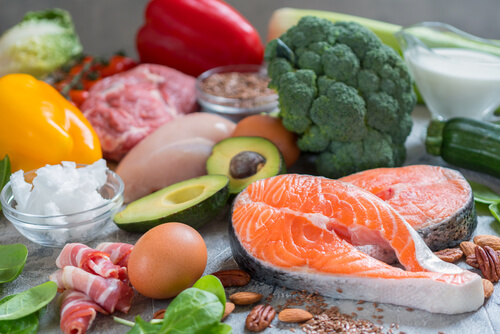May 30, 2019 | 3 minute read
The stress that the body endures when undergoing surgical procedures like breast augmentation, liposculpture, or butt augmentation has been compared to that of running a marathon. Just as if you were preparing to run a marathon, the body needs to be properly prepared for the event.
For surgery, the body is best prepared by supplying it with adequate nutrients to aid the healing process. During this time, you need to give your body the right kind of nutrients to help fuel the body for the long road ahead. Similar to a vehicle, if you supply the wrong fuel, the machine will not run properly. The same rule applies to your body. If you don’t fuel your body correctly, healing is going to be prolonged and more difficult.

What Nutrients Does My Body Need?
Increase Carbohydrates
In the athletic community, this is often referred to as “carb loading”. Increasing your consumption of complex carbohydrates, such as those found in peas, beans, whole grains, and vegetables, has been proven to help reduce hunger, thirst, anxiety, nausea, vomiting, and even pain during recovery.
Include Arginine and Omega-3’s
Stress caused by surgery can weaken the immune system, making you more prone to infections. It is important to increase your consumption of immune-enhancing nutrients, such as arginine and omega-3 fatty acids, to provide support to immune health. Arginine is found in foods such as turkey, chicken, pumpkin seeds, peanuts, and spirulina. Omega-3 fatty acids can be found in fish, flax seeds, hemp seeds, beans, and leafy greens.
Protein
It is important to maintain a good source of protein in your diet before and after surgery to help protect and repair muscles. It is essential to get up and move following the surgery to limit the possibility of muscle loss, because muscle loss in the legs can begin to occur in as little as three days. Staying active (light activities only) can help a patient get back into a normal routine faster when paired with proper protein intake. Good sources of protein include foods such as beans, meat, and dairy. Supplements can also be taken to increase your protein intake.
Increase Caloric Intake
During and after surgery, your body will be burning calories at an increased rate. It is essential to increase your caloric intake with nutrient-dense foods, such as the quality proteins and complex carbohydrates mentioned above. Many people will have nausea after surgery as a side effect of the general anesthesia and may not want to eat for several days. Pushing through that and having your body fueled with large amounts of nutrients can keep it powered up and ready to heal.
For more information about nutrition before, during, and after surgery, contact our office at 951-296-1690 or schedule a consultation with us online today!
